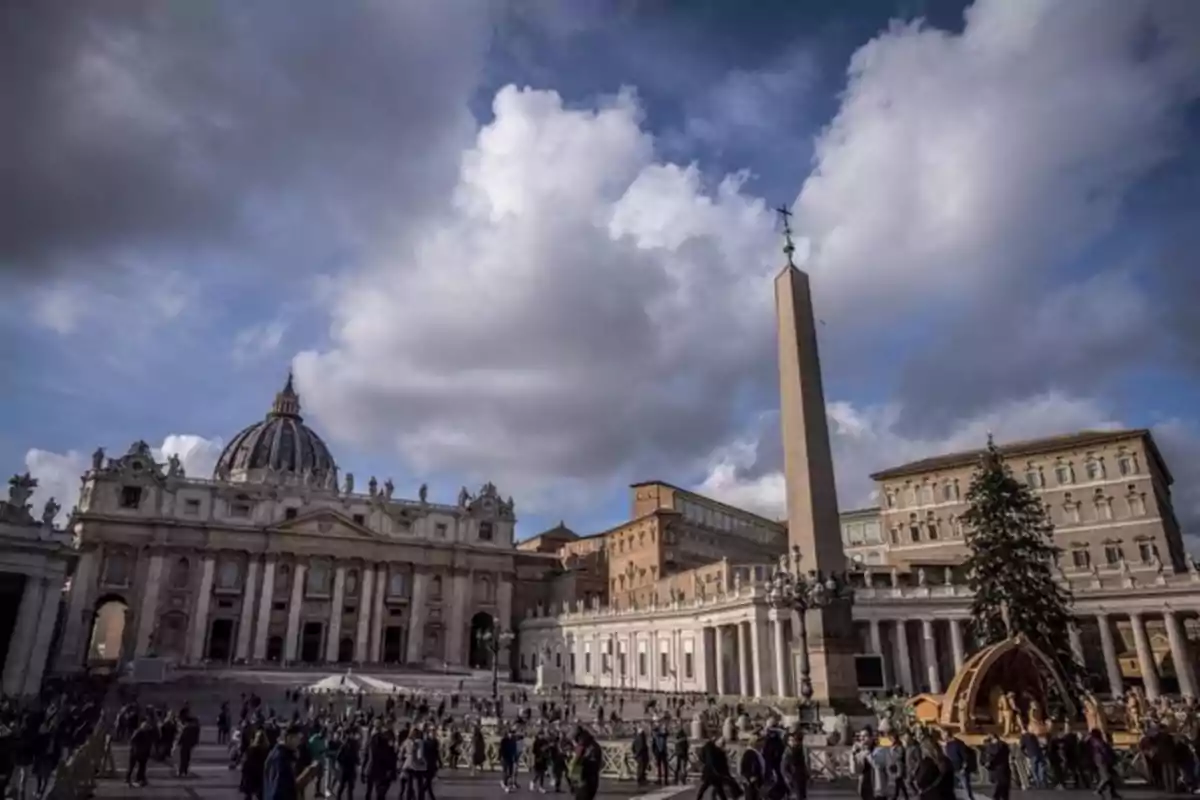
Black smoke at the Vatican: No consensus in the first vote of the papal conclave
The 133 cardinal electors fail to reach the two-thirds needed to elect a pope, they will resume voting tomorrow
The conclave to choose the successor to Pope Francis has begun today in the Sistine Chapel of the Vatican. At 9:04 PM (local time), black smoke emerged from the chimney, indicating that the first vote did not reach the necessary consensus to appoint the new pontiff.
The 133 cardinal electors, from 71 countries, have not yet achieved the two-thirds of the votes required (89 votes) to designate the 267th Pope of the Catholic Church.
The day began with the "Pro eligendo pontifice" mass, presided over by the dean cardinal Giovanni Battista Re. He urged the cardinals to set aside personal interests in favor of the common good of the Church.
After the mass and lunch at the Casa Santa Marta, the cardinals entered the Sistine Chapel in procession. There they took an oath and were isolated from the outside world until an agreement is reached.
The election will resume tomorrow, Thursday, with up to four daily votes: two in the morning and two in the afternoon. The process will continue until one of the candidates obtains the required majority.
The death of Pope Francis on April 21 left a deep spiritual void among the faithful. It also opened a decisive stage within the Church, in which it is expected to solve important internal issues and set the pastoral line of the next pontificate.
The 'D-day' marking the official start of the conclave is today, May 7. This date was agreed upon by the cardinals during the fifth general congregation held on April 28. It complies with the deadline established by the apostolic constitution Universi Dominici Gregis, which stipulates that it must begin between 15 and 20 days after the vacant see.

Since Thursday, April 24, the 133 cardinals under 80 years old summoned to participate in the conclave have attended the general congregations. These are the meetings prior to the seclusion. In them, the challenges of the Church are addressed, and the priorities that the new pope must assume are outlined.
More than a dozen sessions have been held in the New Synod Hall, within the Vatican. In these meetings, non-elector cardinals have also spoken.
This conclave is the most diverse in modern history: cardinals from 71 countries participate. Many of them were appointed by Francis himself with the aim of "decentralizing" the Church and reinforcing its universal character.
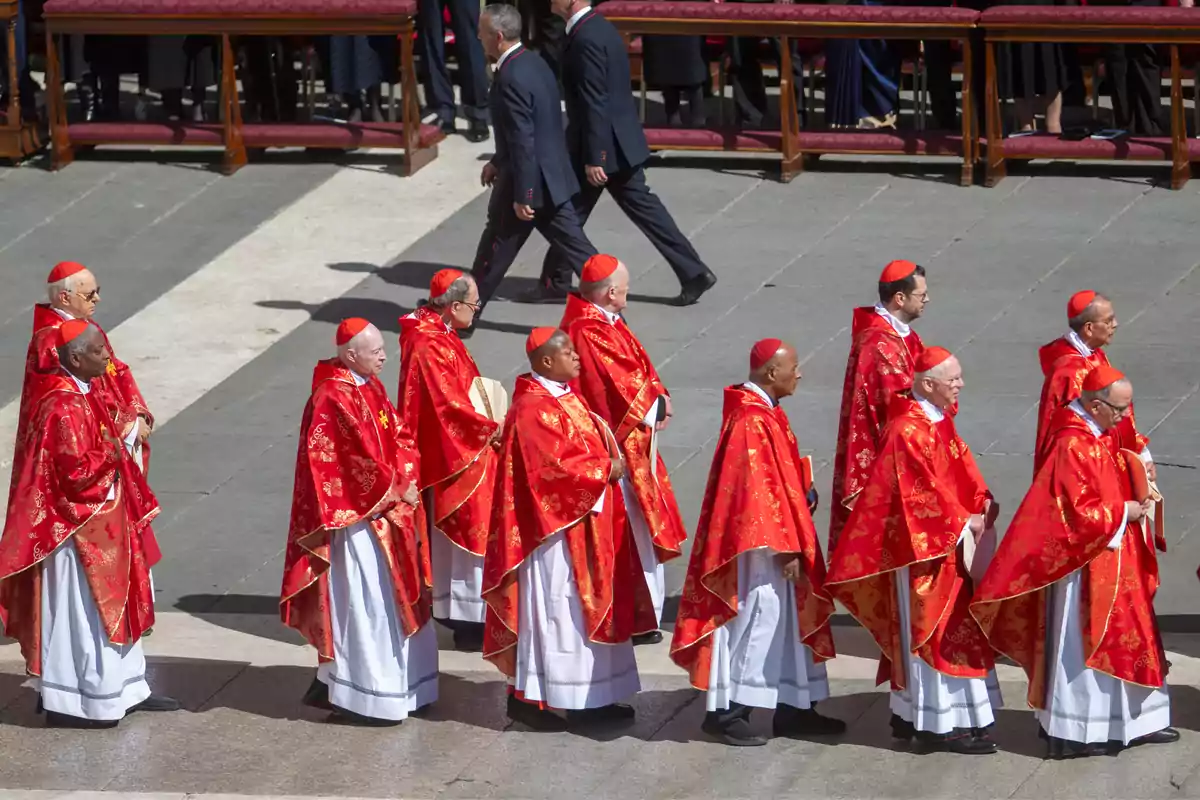
This commitment to internationalization has ensured a more plural composition, although also more fragmented.
Among the debated topics are the doctrinal direction of the Church and the implementation of synodality—one of Francis's most important legacies. Other no less important issues are the zero-tolerance policy toward sexual abuse and the financial transparency of the Vatican. Not to forget the growing loss of relevance of the institution in large areas of the Western world.
Some cardinals advocate for the continuity of the reformist spirit and support figures like the Filipino Luis Antonio Tagle or the Italian Matteo Zuppi. Others, however, call for a return to a more doctrinally strict Church and promote cardinals like the Hungarian Péter Erdő.
Procedure details in the Conclave
The conclave officially began today, Wednesday, at 10:00 AM with the "Pro eligendo Pontifice" mass in St. Peter's Basilica. The service was presided over by the dean of the College of Cardinals, Cardinal Giovanni Battista Re.
At 4:30 PM, the cardinals proceeded to the Sistine Chapel, chanting the traditional "Veni Creator Spiritus." There they took an oath of absolute secrecy about the deliberations.
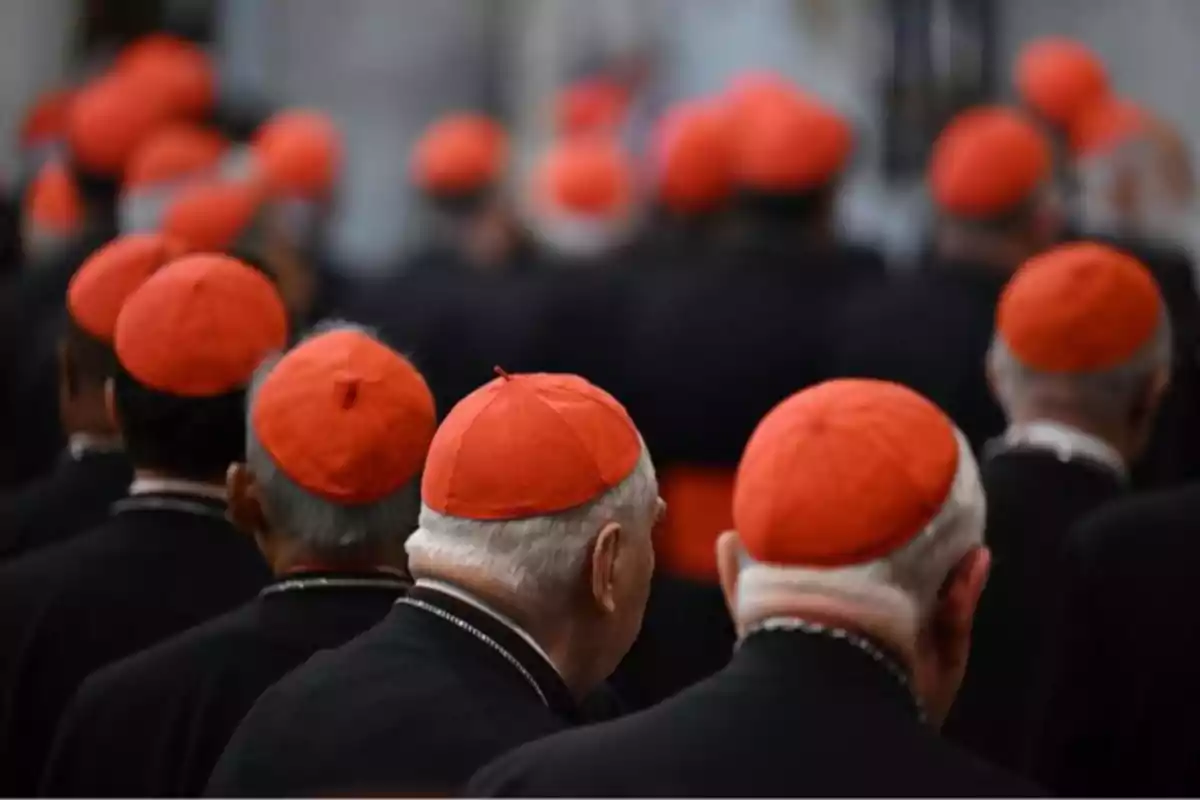
The process requires a candidate to obtain two-thirds of the votes, that is, at least 89. If there is no result after three days, a day of prayer and reflection is established before resuming the votes. The ballots will be burned after each scrutiny. The black smoke (no election) or white smoke (election of pope) will be the only visible sign to the outside world.
Maximum security of the Conclave and total isolation
The Vatican has taken rigorous measures to preserve the secrecy of the conclave. The Sistine Chapel has been electronically inspected, and frequency jammers have been installed. The cardinals will sleep in the Casa Santa Marta, with no possibility of communication with the outside. Access has been restricted, and the perimeter of the Vatican remains heavily guarded.
The staff who will have contact with the cardinals—drivers, medical staff, cooks, cleaning staff—have been required to sign a confidentiality oath under penalty of latae sententiae (automatic) excommunication. The use of mobile phones or any other type of electronic device is strictly prohibited.
Names that resonate strongly
In the corridors of Rome, some names are heard more frequently. Pietro Parolin, the current Secretary of State of the Vatican, appears as a consensus candidate: moderate, diplomatic, with experience in international politics. Another strong profile is Luis Antonio Tagle, with great influence in Asia and a promoter of a Church close to the poor. Matteo Zuppi, Archbishop of Bologna and a highly respected figure within the Sant'Egidio movement, is seen as a bridge between progressives and conservatives.
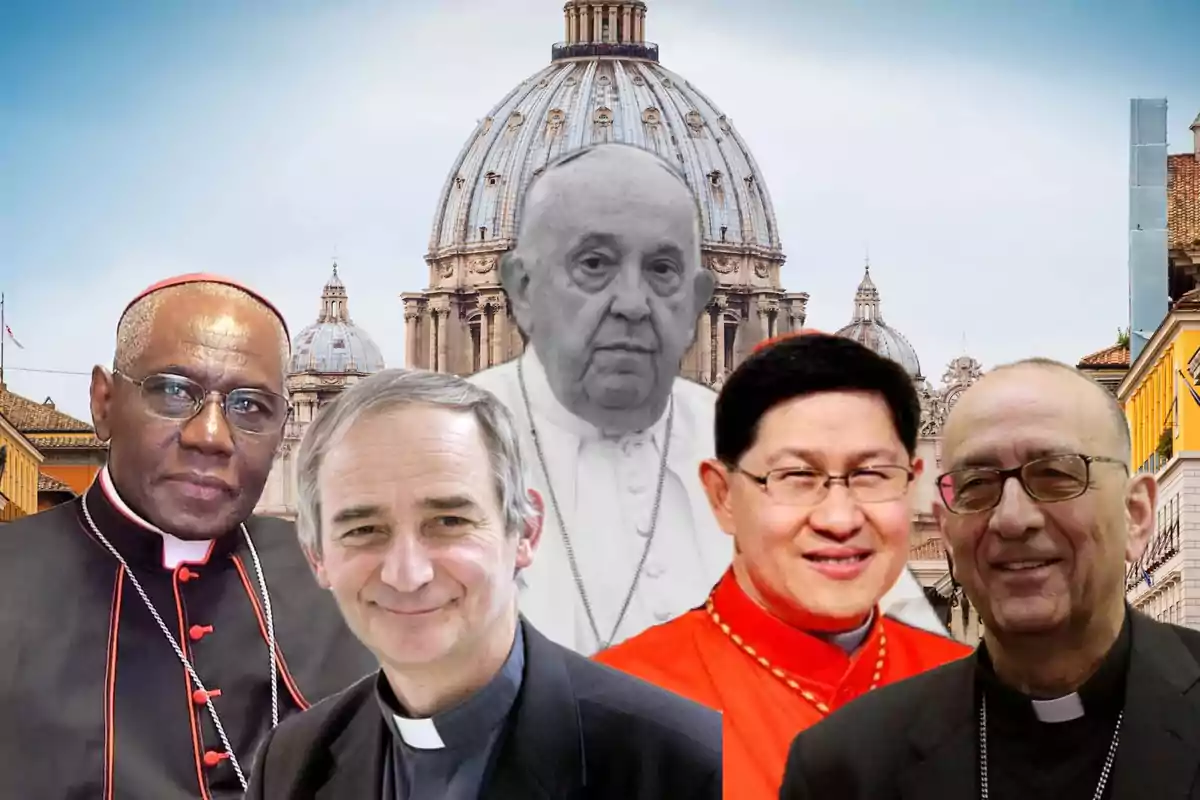
Other relevant but more discreet names are the Spaniards Juan José Omella and Ángel Fernández Artime, the Latin American Baltazar Porras, or the African Robert Sarah.
The global context and the desired profile
The next pontiff will not only have to face internal challenges. The international situation adds pressure: open wars, an increasingly alarming climate crisis, the rise of populist movements that clash with the values of the Gospel, and a post-pandemic world that has exacerbated inequalities.
Various experts point out that the Church needs a leader who is both a pastor and a statesman. Someone capable of reforming without fracturing, of speaking to believers but also to non-believers. Francis, with his simple and direct style, broke molds, but he also left an institution fatigued by internal tensions.
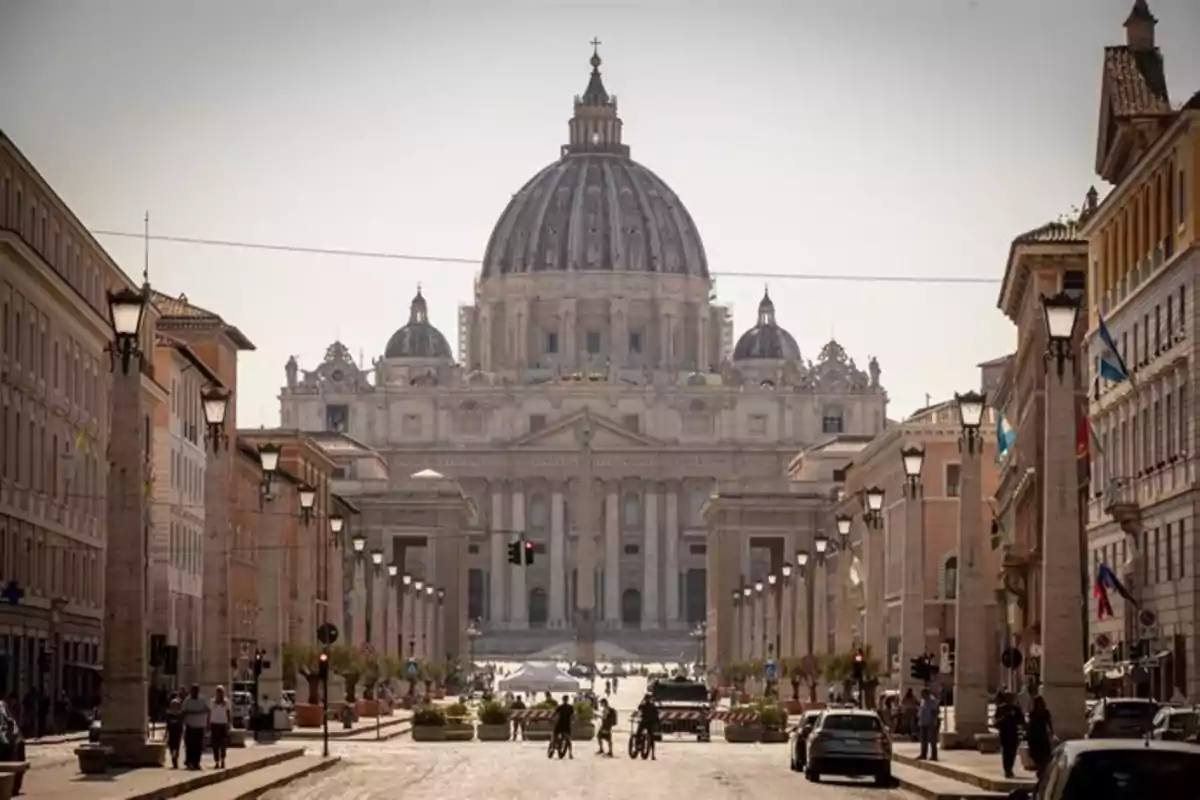
Many cardinals have requested during the congregations that the new pope have "active listening. Also humility and the ability to reconcile." Some simultaneously call for a younger leader, capable of facing a long and reforming pontificate.
The decisive hour
The white smoke has not yet risen, but the world is already watching every movement in St. Peter's Square. It is expected that the conclave could be solved in less than five days, although the diversity of sensibilities suggests more than one round without agreement.
Meanwhile, the faithful pray. In parishes around the world, prayer vigils are held, candles are lit, and blessings are requested for the future pope. In a Church marked by scandals, divisions, and cultural challenges, hope is reborn in the oldest and most solemn ritual that the Catholic faith has preserved for centuries.
"Habemus papam" will be the cry that marks the beginning of a new stage. For now, no one knows when it will resonate.
More posts: